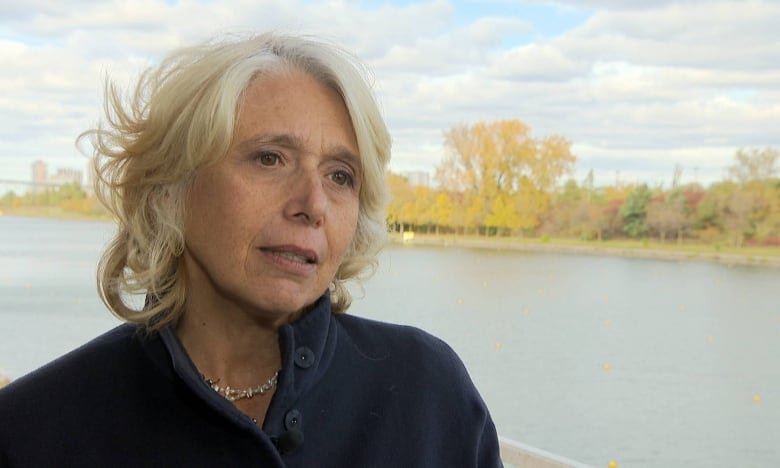Montreal officials plan to end water fluoridation by year’s end, igniting backlash from West Island municipal leaders who argue the decision lacks input from public health experts and the community.
In a statement posted to its website, Baie-D’Urfé says this decision was made without public consultation or input from demerged municipalities.
Baie-D’Urfé says water fluoridation is mostly subsidized by the provincial Health Ministry as a preventive dental health measure, and it is encouraging residents to voice their concerns to Montreal officials and the agglomeration council.
“I think that science should dictate what we do,” said Dorval Mayor Marc Doret in an interview. “I’m sure people would then be able to accept the result.”

Two water treatment facilities in the Montreal area add fluoride: one in Pointe-Claire and one in Dorval. Managed by the City of Montreal, they provide water to Pointe-Claire, Beaconsfield, Kirkland, Baie-d’Urfé, some of Dollard-des-Ormeaux and Dorval — all independent municipalities in the West Island.
Doret says his municipality is investigating whether the move is a breach of contract.
Montreal lists reasons for stopping treatment
Montreal, which doesn’t supply fluoridated water to the rest of the island, lists several reasons for stopping the treatment.
For example, there are concerns about fluoride’s corrosive nature and its potential long-term damage to water infrastructure, according to Hugo Bourgoin, a spokesperson for the city.
The recommendation to end fluoridation by the end of the year will be reviewed by the agglomeration council, Bourgoin said, noting Quebec municipalities have largely abandoned the practice.

Plus only a small portion — one per cent — of drinking water is consumed by people, and wastewater treatment does not remove fluoride, leading to its discharge into the St. Lawrence River, he said.
“We would be putting fluoride in our drinking water for washing our cars, for using in the shower and all of this is going into the St. Lawrence after so why put all these chemicals into the water?” said Maja Vodanovic, Montreal’s executive committee member responsible for water.
City cites health concerns for children
The city also points to a report by the United States National Toxicology Program which found that higher levels of fluoride exposure, such as drinking water containing more than 1.5 milligrams of fluoride per litre, are associated with lower IQ in children.
There’s only 0.7 milligrams per litre in the water treated for the West Island.
“What the research says is that today, there’s a lot of fluoride in toothpaste. Children use that,” said Vodanovic. “There’s mouthwash. So if you combine a child using fluoride on his toothbrush and drinks fluoride water, then they might be exceeding the amount.”
Health agencies have a different opinion on fluoride. The U.S. Center for Disease Control and Prevention, Health Canada and Montreal Public Health all endorse water fluoridation.
“There’s overwhelming evidence of the benefits of fluoride in preventing tooth decay in multiple different formats, whether it’s in toothpaste or water or you go to the dentist for a fluoride varnish,” said Paul Allison, a professor in the faculty of dental medicine and oral health sciences at McGill University.
“And dental decay is a very important public health problem. It’s the most common non-communicable disease in the world, including in Canada.”
Fluoridation study questioned by expert
Fluoride in the water supply is a widely accepted way to prevent tooth decay, Allison said, but the decision to fluoridate water is often left up to municipalities which don’t have the resources or expertise to fully research and understand the issue.
It just takes a few people to stand up and claim it is harmful to convince municipalities to stop fluoridating the water, he said. This decision should instead be up to the province.
And the study linking fluoride in water to children’s IQ is being challenged by experts around the world, Allison said.
“There are all sorts of issues with it,” he said, noting that the study hasn’t been repeated and the authors are refusing to give access to data.
Fluoride is toxic in large quantities, but so is chlorine and chlorine is used to clean water but “no one questions that at all,” Allison said.
Tooth decay, on the other hand, can lead to infections and require antibiotics for treatment. Antibiotics can, in turn, contribute to antimicrobial resistance.
Tooth decay can also require surgery under general anesthetic, and while that’s usually safe, there can be problems, Allison explained.
“There’s always the potential for negative effects,” he said. “Yes, we should study those things but we can’t jump on the back of one study, which is highly questioned, and make a decision based on that.”




